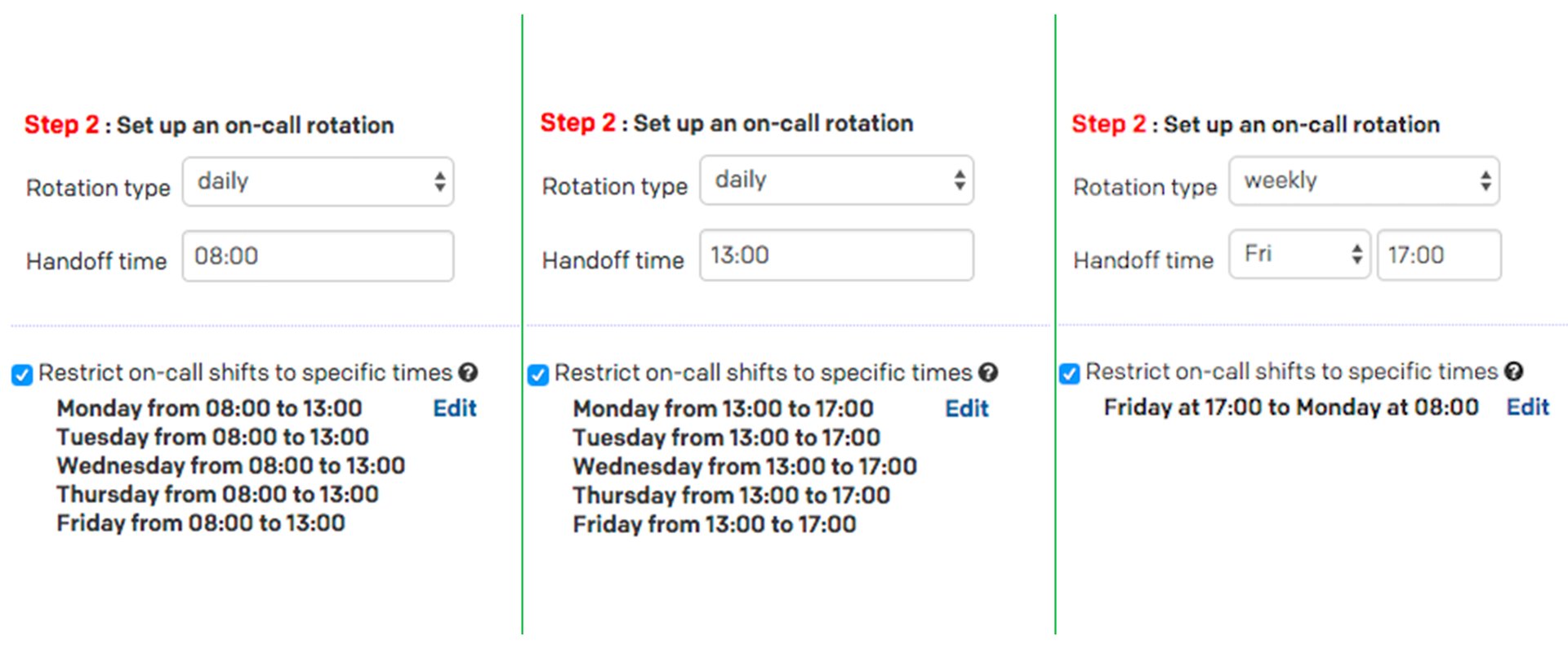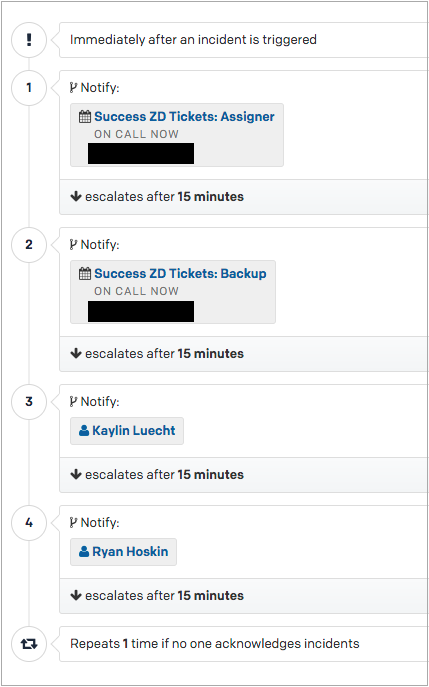- PagerDuty /
- Blog /
- Use Cases & Solutions /
- How Customer Success Uses PagerDuty
Blog
How Customer Success Uses PagerDuty
Like many Customer Success teams, we work closely with Sales to help support our customers. We receive a variety of requests from the Sales organization, ranging from enabling a new feature for a potential customer, to a request to join a call to review best practices. In order to streamline requests and ensure we don’t miss anything (and so that as a manager, I can track everything!), we utilize Zendesk as our ticketing tool. For Sales, it’s as simple as emailing our team alias to create the ticket and for Customer Success, it’s an easy tool to see all incoming requests.
The problem we faced with this request process though was that there was no clear ownership of the ticket queue. We relied on the approach of, “during free time, jump into the queue” but as any customer success manager (CSM) knows, free time is a tough thing to find. Between scheduled calls, emails with customers, and proactive account analysis, we weren’t able to tackle the tickets within our internal service level agreement (SLA). On top of that, a lot of the responsibility to manage the ticket queue was landing on one or two individuals. We knew we had to make adjustments.
Fortunately for us, we had PagerDuty to assist! The way we built our PagerDuty process is such that someone on the team is always on-call. During their shift, they are responsible for any new tickets that come into the queue. Should a Zendesk ticket reach our internal SLA, an incident is created in PagerDuty and alerts the on-call CSM. If they don’t acknowledge and resolve the ticket, it gets escalated through our team’s escalation policy.
How We Set It Up
We decided as a team that we would have an on-call rotation. For the CSMs, it was important to be on-call for short shifts to ensure we could meet the internal ticket response SLA while staying on top of client requests. With that, we created morning and afternoon shifts during the work week and one on-call layer for the weekends. The schedule is setup to rotate through the entire team for fair distribution of work.

Within the schedules, we also created a backup schedule, in case someone isn’t able to stay within our team SLA, the escalation policy will alert the backup person who can step in to help. This collaboration is a key value of PagerDuty!

Our escalation policy is also setup to notify me should the incident not be acknowledged, so as the team manager, I can step in to see what’s happening and help resolve the ticket(s) in question. And if I’m in a meeting or miss the alert, then Ryan (our Senior Director) is paged.
Ultimately, by utilizing PagerDuty we’ve been able to accomplish two things:
- Our customers are ecstatic with our quick response times, which benefits our Sales team
- Our CSM team has defined queue ownership and prioritization, without an impact to their day-to-day
PagerDuty isn’t just for Engineering teams; we are eager to implement PagerDuty across more of our account responsibilities in the future!
Creating a Feedback Loop
Net Promoter Scores to Drive Customers for Life
One of our core values we hold close to our hearts at PagerDuty is “Customers for Life”. For us, this means that PagerDuty is able to provide services that enable our customers to more easily achieve their objectives, and we want to support them throughout their mission. In order to ensure we are meeting their expectations of us, we utilize the Net Promoter Survey (NPS) to gauge how we are performing.
The beauty of NPS is in its simplicity — it’s one question (scored on a 0 – 10 scale) that asks how likely the individual is to recommend PagerDuty to a friend. It also has an open comment section should the responder want to give more detailed feedback. Our customers are amazing in that not only do they share a common appreciation for PagerDuty, they share insightful feedback on areas they’d like to see us improve.
So what do we do with the thousands of responses we receive?
- It is imperative to us that if our customers take the time to respond to our survey, that we ensure we take the time to follow-up! This means that our Support team looks at each survey response and responds with suggestions for improvement, logs a feature request, or asks for more information to assist.
- All responses filter into a company-wide #nps-responses Slack channel so that individuals across the organization are able to see the scores & comments as they happen.
- As a Customer Success team, we compile the key trends & data points to share across the Product & Sales organization monthly. We want to share the findings to help shape the product roadmap and ensure our customer’s needs are being met. For our Sales organization, we get them the overall account feedback to ensure we are following up with the account owners on key themes we are seeing across their team’s responses.
- We recently launched PagerDuty Community, so we started by inviting our promoters to the Community when we were in beta, and continue to invite them today. We are hopeful that these individuals who have found success with PagerDuty can help others by sharing best practices and helpful hints.
NPS for us is a constantly evolving process. We value each response we receive and will continue to iterate on our internal processes to ensure we continue to meet & exceed expectations.
And as an organization whose number one goal is to ensure our customers are successful with our product, we realize it’s our task to delight customers, to meet their expectations of having 24x7x365 access to products and support services via engagement channels of their choice. Whether it be by setting SLAs or finding ways to obtain feedback with an NPS score, it’s crucial to implement technology and process automation that empowers teams like ours to foster customers for life.
Using PagerDuty to Deliver Awesome Customer Support
At PagerDuty, we’ve already started to see that many companies are expanding their use of our product beyond IT and DevOps — making Digital Operations Management a reality in their organization. Join us at PagerDuty Summit on September 7th in San Francisco for a panel with leaders from GE, Okta, and Gainsight as they discuss how they use PagerDuty to coordinate response to both typical and critical customer issues — delivering the best possible responses 24X7, every time.
- Disha Gosalia, Sr. Director, Customer Support, IOT Platform, GE
- Allison Pickens, Customer Success Thought Leader & Chief Customer Officer, Gainsight
- Larry Aronovitz, VP Customer Support, Okta


